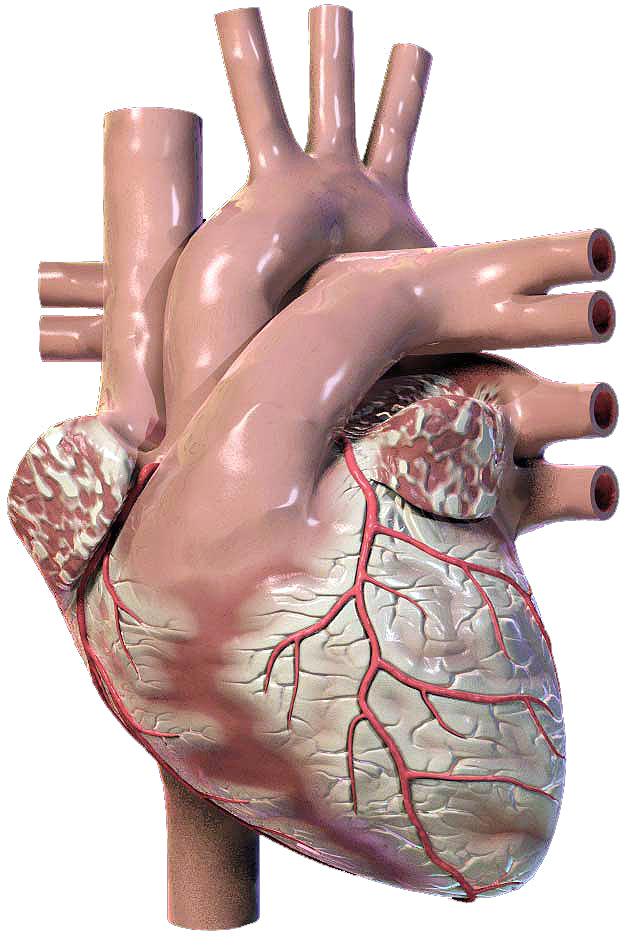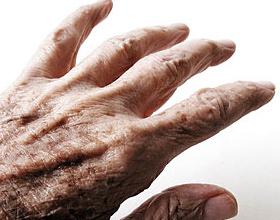
10 minute read
Presidential Address
from Issue 13
Everyday, we are engrossed by the objects that we can see and touch. We take for granted the simplest processes of life -- forgetting all the microscopic components that work vigorously to allow daily functioning. Yet, many notable discoveries and breakthroughs involve only one gene, molecule, or cell. The progression of research has stretched boundaries and magnified our field of vision. In exploring these scientific advances, we bear the responsibility of establishing rules and considering the ethical implications. Our thirteenth issue focuses on these fundamental components, highlighting its biological roles and discussing its influence in society. For instance, the lucrative effects of genetic discovery are explored by Dan Mok, when discussing the legal and financial realities of gene patents. Ran Ran and Tiffany Chan identify epidemiological trends associated with the hygiene hypothesis, and investigate immunological mechanisms that participate in allergic responses. The concept of personalizing medicine to one’s genetic composition holds a future position in healthcare, as described by Manan Shah. Implications of genetic screening are further explored by Sarah Levitt, as she guides us through the moral and political issues of “saviour siblings.” Lastly, Kirandeep Bhullar addresses the increasing concerns of antibiotic resistance through a description of bacterial mechanisms and evolution. Together, these articles demonstrate the significant social involvement, beyond biological function, of life’s smallest components. Likewise, this publication depends heavily on the dedication and hard work of different groups of individuals. Thank you ever so much to the writers, whose effort and enthusiasm offer us insight into important medical and health matters, and to the post-graduate editors, who ensure superior quality of our publication. I would like to extend my appreciation to Dr. Del Harnish and the Bachelor of Health Sciences Program, who continue to generously support this valuable initiative. Lastly, I am honoured and excited to work with our growing team of executives, whose patience, cooperation, and talents have made this possible. To Jacqueline Ho, thank you for your support and ability to keep everything organized. Thanks to our skilled editors: Harjot Atwal, Veronica Chan, Randall Lau, Simone Liang, Siddhi Mathur, Alexandra Perri, Navpreet Rana, Manan Shah, and Fanyu Yang; your work with the writers and post-graduate editors is exceptional and I am grateful for your collaborative efforts. Thank you to our creative team, led by Stephanie Low. Her extensive experience in layout has polished the publication to its sleek visual finish, with the help of the artistic strengths of Ran Ran and Andrew Yuen. To Avinash Ramsaroop, thank you for your development and maintenance of the website, an important channel of information. Finally, I would like to introduce our newest executives: Ahmad Al-Khatib, Alyssa Cantarutti, Randal Desouza, Keon Maleki, Hiten Naik, and Sangeeta Sutradhar. I truly thank you for all the work you have done already; with such intelligent, keen, and energetic individuals, I know that the future of the Meducator is bright. Please visit our website, www.meducator.org, to see past issues, find information about submitting articles, and read our daily MedWire updates. The website also provides a form for inquiries and comments; we want to hear from our readers! On behalf of the writers and staff, we hope you enjoy this issue.
Sincerely,
Advertisement
Meducator Staff

President Crystal Chung
Vice-President Jacqueline Ho
Editorial Board Veronica Chan Randall Lau Simone Liang Siddhi Mathur Alexandra Perri Navpreet Rana Manan Shah Fanyu Yang
Creative Director Stephanie Low
Web Master Avinash Ramsaroop
Public Relations Harjot Atwal
Graphics & Design Ran Ran Andrew Yuen
Junior Executives Ahmad Al-Khatib Alyssa Cantarutti Randal Desouza Keon Maleki Hiten Naik Sangeeta Sutradhar
Post Graduate Editors
Dr. Ronald Carter, PhD, DVM
Dr. Kimberly Dej, PhD
Dr. Fiona Miller, MA, PhD
Dr. Ken Rosenthal, PhD
Dr. Lisa Schwartz, MA, PhD
A recent study conducted at Emory University discovered that 55% of subjects with
Parkinson’s had insufficient
levels of vitamin D, compared to 36% in age-matched controls. The substantia niagra, the part of the brain inflicted in Parkinson’s, has a greater number of vitamin D receptors, suggesting that vitamin D deficiency may be associated with the disease.
The European Commission determined that 10% of the population could suffer permanent hearing loss if exposed to high volumes for longer than one hour per day, over five years. Millions of people use music players well above the safety level of about 80db in order to block out daily noises such as traffic. New safety standards are pending implementation but the trend towards high volumes continue at present.

A study in the Archives of General Psychiatry has found that children having the
most protective variant of
the CRHR1 gene, responsible for regulating response to stress hormones, are less likely to demonstrate long term consequences of physical or mental trauma.
Shocking health inequalities
around the world have caused the World Health Organization (WHO) to criticize the universal issue of cost and access to proper healthcare. The World Health Report 2008 drew attention to statistics such as: 43% of women have no medical assistance during childbirth, 5.6 billion people pay out-of-pocket for more than half of their health care expenditures, and child mortality rate, particularly in Nairobi, varies by almost 25% depending on income.
A researcher from McGill University has discovered a “gene desert” – a stretch of DNA between two genes – that is essentially responsible for male pattern baldness. The one out of seven men who carry this trait are seven times more likely to eventually become bald.
A study published in the British Medical Journal have found that women who
smoke are eight times more
likely than non-smoking women to die from an aortic aneurysm rupturing - which is characterized by the rupturing and weakening of the heart’s largest artery wall. A recent study from Nature describes the novel method used by a team of American scientists in the regeneration of prostate glands in mice. The researchers began by isolating stem cells responsible for the development of all cells in the prostate. These cells were then transplanted back into the mice, resulting in the formation of gland replicas. British surgeons have created one of the first three-
dimensional models of the
human heart, which is so intricate and accurate that it is able to simulate the timing of heartbeats to within 20 milliseconds.
An interesting study by the University of Illinois’ medical school suggests that the song
“Stayin’ Alive” might be the
perfect rhythm for performing CPR. The American Heart Association recommends 100 chest compressions per minute; giving the 103 beats per minute disco tune a whole new meaning.
A British study has found that
aspirin has no effect on heart
disease. Current guidelines advocate use by diabetics to counter the underlying risk of heart attack and stroke. While it is shown to be beneficial in reducing the risk of future heart attacks or strokes, its use as primary prevention carries significant risks such as gastrointestinal bleeding, and poses new concerns for nondiabetics. Researchers at Lakehead University have found that hydrogen sulfide, the foulsmelling gas normally found in sewers, can lower blood pressure. They discovered that it is naturally produced by cells in the body, and that it allows blood vessels to relax for improved flow.

Alberta scientists have found that after experiencing heart failure, patients are at a higher risk of fracturing bones. This is associated with an increased risk of
MED

osteoporosis. The underlying mechanism remains unclear, but researchers are calling for more thorough and frequent screening for patients who have experienced extreme cardiac distress.

Australian scientists have discovered that shark antibodies may potentially be used to synthesize a new generation of cancer-fighting drugs. These compounds are exceptionally resilient since they are able to survive in the extreme conditions of the human gut. Through binding to cancerous cells, shark antibodies inhibit their growth, and there is evidence of their efficacy in slowing down breast cancer development.
Three scientists from Hanover Medical School in Germany have developed heart valves that grow with patients. Mechanical valves, or those from animals, prove to be problematic for children whose hearts are still growing. To create these innovative valves, the scientists excised valves from humans or animals, removed most of the tissue, and re-engineered them with cells from the patient.
A new class of antibiotics is on the verge of being developed, created from compounds isolated from naturally-occurring soil organisms decades ago. Untested as of yet on humans, researchers say that cellbased experiments suggest they are potent enough to kill even stubborn bugs such as disease-resistant TB.

The Bridge Centre of London, England has developed a test for embryos that can detect
any of the 15,000 inherited
diseases in the short time span of a few weeks. The test screens for genetic disorders by comparing the DNA of the embryo against that of family members to determine if the embryo has inherited DNA coding for certain genetic diseases.
Canadian researchers have determined that a typical Western diet rich in salty and
fatty foods is responsible for 30% of the world’s heart
attacks. The McMaster team of scientists concluded that an ideal diet consists of lots of fresh fruits and vegetables. This diet is even more effective than the tofu and soy oriental diet, and will lower heart attack risks better than any drug available.
A new study from the University of California Los Angeles has found that web surfing can
help counteract reduced
brain activity in middle and older aged individuals by stimulating brain regions responsible for reasoning and decision-making.

Baffled doctors have finally labelled a mysterious rash on people as “mobile phone dermatitis”. This condition is caused by allergic reactions to the nickel content in the phone after excessive mobile phone usage.
Australian researchers have discovered a genetic link to male transsexualism. This gene is involved in testosterone action and was found to be longer in male-to-female transsexual volunteers. This study further provides evidence that there is a biological basis to transsexualism.

Food allergies in young
children are on the rise in North America. Since last year, the prevalence of such allergies has increased 18%. Doctors are unsure about why this is occuring, but they note that while several years ago parents may have ignored symptoms like skin rashes, parents today are quick to take their children to specialists.
A recent study in the scientific journal, Pharmacotherapy, suggests that 18% of first
year university students
in the United States rely on over-the-counter stimulants, such as Ritalin and Adderall, to enhance concentration during studying. Doctors fear that these students may suffer from known short term concerns, such as anxiety and insomnia, as well as unknown long term effects. The issue also presents ethical concerns for those who view the use of performance enhancing drugs as a form of cheating.
Alemtuzumab, a drug used to treat leukaemia, has been
shown to reverse brain
damage caused by multiple sclerosis (MS). Researchers at the University of Cambridge posit that the drug, a monoclonal antibody that acts against cancerous white immune cells, also disrupts the action of defective lymphocytes involved in MS.
The U.S. government has approved a non-invasive brain stimulator that beams magnetic pulses through the skull as a therapeutic treatment for depression. Known as transcranial magnetic stimulation, this treatment has been shown to increase standard depression measures in patients after 6 weeks of treatment. Dr. Geoffrey Hackett, a British urologist, warns that erectile dysfunction is often ignored as a sign of heart trouble. MedWire Erectile dysfunction has been linked with a 50-per-cent higher risk of vascular disease. Hackett is an advocate of using erectile dysfunction as a primary indicator of heart problems, suggesting that it is a better predictor of heart disease than high blood pressure or cholesterol.
Dr. P. Nitschke, an euthanasia expert from Australia, is currently promoting his non-profit organization Exit
International in the United
Kingdom, despite many controversies regarding the ethics of assisted suicide. Many of his workshop venues withdrew after learning the nature of his conferences. Dr. Nitscke advocates for people’s rights for a “definitive, peaceful end”, and even goes as far as providing older people with “pieces of equipment” which are sometimes dubbed as ‘Do It Yourself Suicide Kits’.



